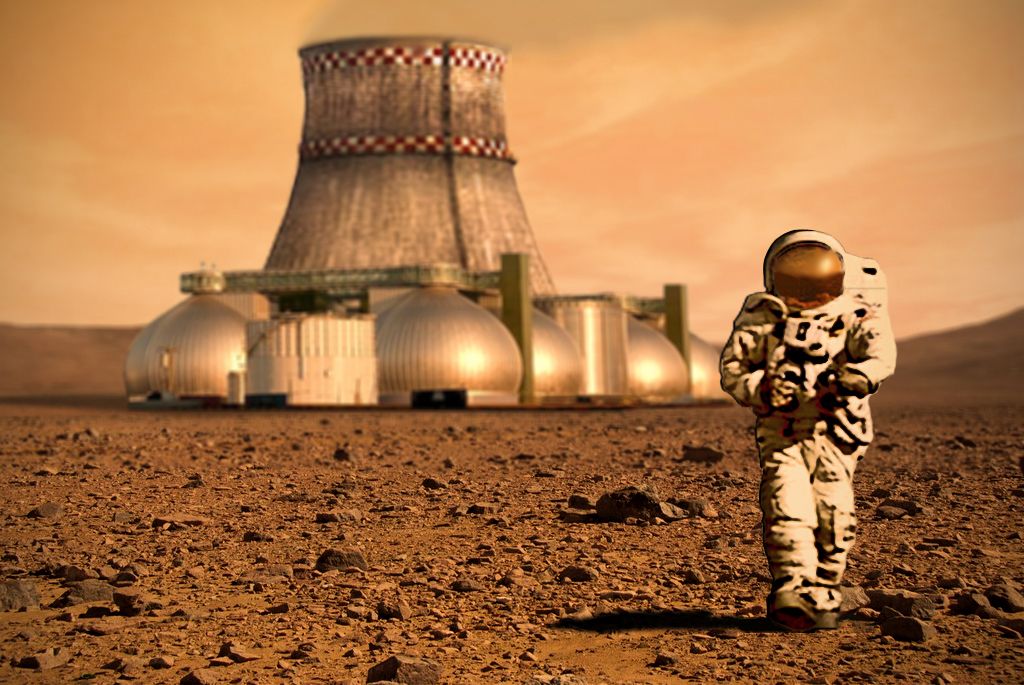 Scientists of Wageningen University & Research have just brought life on Mars one step closer. The research group, supported by Mars One, found that vegetables growing on Martian soil are safe for humans to eat.
Scientists of Wageningen University & Research have just brought life on Mars one step closer. The research group, supported by Mars One, found that vegetables growing on Martian soil are safe for humans to eat.
In the university greenhouses in Wageningen, the Netherlands, the scientists have worked on growing crops on Mars and Moon soil simulants since 2013. The first experiment demonstrated that crops could grow on the soil simulants. In 2015, the researchers mixed inedible parts of the 2013 plants into the simulant and succeeded to grow ten different crops, of which several were harvested. One remaining uncertainty was that heavy metals such as cadmium, copper and lead, which are present in the soils, could contaminate the crops. If too high levels of heavy metals from the soil are absorbed in the edible parts of the plants, the crops become poisonous.
The researchers have now tested four of the ten grown crops for heavy metals: radishes, peas, rye, and tomatoes. No dangerous levels of aluminium, copper, iron, manganese, zinc, arsenic, cadmium, chrome, nickel and lead were found - the four crops are safe to eat. "These remarkable results are very promising" says senior ecologist Dr. Wieger Wamelink. “We can actually eat the radishes, peas, rye, and tomatoes and I am very curious what they will taste like." Interestingly, for some of the heavy metals the concentrations in the plants were even lower than in the crops grown in potting soil.
This year’s research is funded by a crowdfunding campaign, which already yielded over €11,000. A total of €25,000 is needed to test the remaining six crops, including potatoes. Dr. Wamelink: ‘It's important to test as many crops as possible, to make sure that settlers on Mars have access to a broad variety of different food sources". The crops are not only for tested for heavy metals, but also for vitamins, flavonoids and alkaloids. If the heavy metal concentration in all vegetables is below the critical levels set by the Dutch Food Agency and the US Food and Drug Administration (FDA), a dinner for sponsors of the research will be organized. Participants will be the first to eat the ‘Martian’ vegetables and will discover if Mars- and Earth grown food taste differently. The crowdfunding campaign will run until end of August.
Bas Lansdorp, CEO and co-founder of Mars One: "Mars One is very proud to support this important research. Growing food locally is especially important to our mission of permanent settlement, as we have to ensure sustainable food production on Mars. The results of Dr. Wamelink and his team at Wageningen University & Research are significant progress towards that goal".
More information
- Crowdfunding campaign: Can we safely eat plants grown on Mars?
- Food for Mars blog series on Mars Exchange
- Photos of the Mars Moon experiments
- Dr. Wieger Wamelink on Twitter
VIDEO: Dr. Wieger Wamelink answers five questions about growing plants on Martian soil simulant.
About Wageningen University & Research
Wageningen UR is a collaboration between Wageningen University and the DLO foundation. ‘To explore the potential of nature to improve the quality of life’. That is the mission of Wageningen UR (University & Research centre). A staff of 6,500 and 10,000 students from over 100 countries work everywhere around the world in the domain of healthy food and living environment for governments and the business community-at-large. The scientific quality of Wageningen UR is affirmed by the prominent position they occupy in international rankings and citation indexes.
For more information please visit www.wageningenur.nl
About Mars One
Mars One is a not for profit foundation with the goal of establishing a permanent human settlement on Mars. To prepare for this settlement the first unmanned mission is scheduled to depart in 2020. Crews will depart for their one-way journey to Mars starting in 2026; subsequent crews will depart every 26 months after the initial crew has left for Mars. Mars One is a global initiative aiming to make this everyone's mission to Mars, including yours. Join Mars One’s efforts to enable the next giant leap for mankind.
For more information please visit www.mars-one.com.